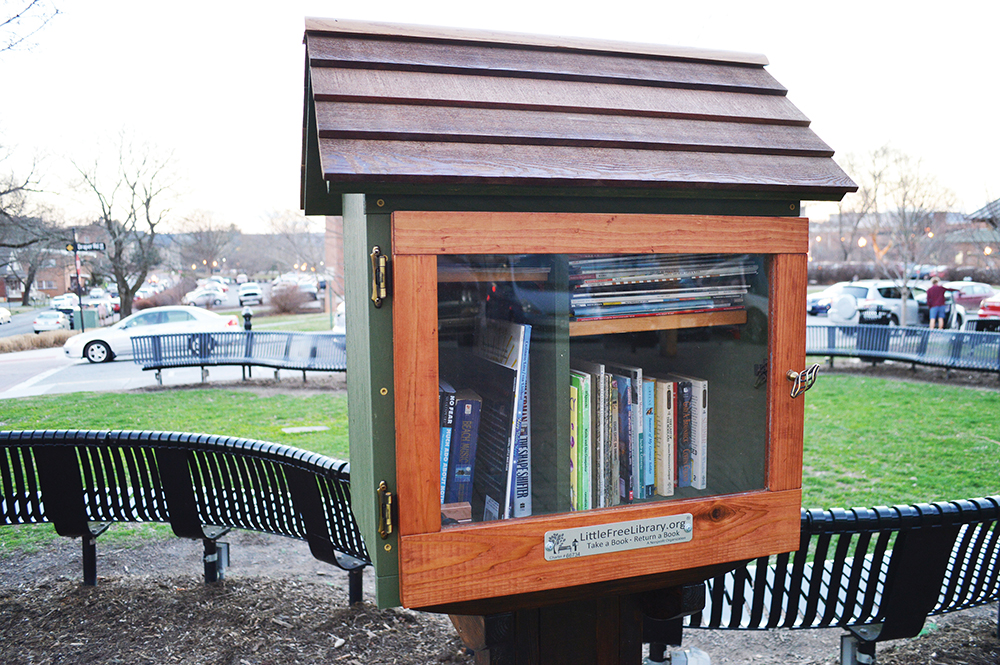Text by Nancy S. Moseley
Chances are you’ve probably seen one, because … they’re everywhere: a random neighborhood street corner, a shelf at your local coffee shop, a box at your favorite park, a basket at the nearby elementary school. Spotting one might even feel like a serendipitous discovery, not unlike catching a glimpse of a fabled creature, like Big Foot. Stephen King once said: “Books are a uniquely portable magic,” and Little Free Libraries, in their subtle yet tenacious way, are portals to that magic.
Headquartered in Hudson, Wisconsin (30 minutes east of Minneapolis), Little Free Libraries is an international nonprofit organization that cultivates unfettered access to millions of books through a “take a book, return a book” exchange program. It started in 2009 when Todd Bol built a model of a one-room schoolhouse, filled it with books and put it on a post in his front yard. It was a tribute to his mother, an educator who loved to read.
The gesture was beloved by Bol’s neighbors and friends, several of whom requested a schoolhouse of their own. Bol eventually collaborated with Rick Brooks, a social entrepreneur who was an outreach program manager at the University of Wisconsin. The two launched the official Little Free Libraries movement in 2012 and now there are more than 65,000 registered libraries in 84 countries and in all 50 states.
“We’re working to inspire a love of reading, build community and spark creativity by fostering neighborhood book-sharing boxes around the world,” says Margret Aldrich, the marketing and communications representative for Little Free Libraries.
That’s precisely the beauty of the crusade; it’s a big idea that’s executed on an intimate, local level. Salena Sullivan of the Montgomery-Floyd Regional Library remarks that the strongest part of the little library mission is that it often starts with the initiative of individual community members. “It’s people who saw a hole in their own neighborhood and wanted to fill it,” offers Sullivan, “which is wonderful to see. As librarians, we want the library walls to be porous, so people not only know about us inside the library, but outside the library, too.”
So how easy is it to pioneer your own little library? First, decide on a location. An area with a lot of foot traffic is best, like a park, farmer’s market, playground or bike path. Be sure to work with local government on the legalities. Second, decide who will act as the library’s ongoing caretaker. Anyone can be a steward of a little library: scout troops, school groups, local organizations or individual community members and families.
In Giles County, the Giles Early Education Project (GEEP) is a steward of several little libraries. They used the opportunity to promote literacy by engaging with area youth to help paint and install the libraries.
“The children artists love seeing their artistic creations being used to offer books in their communities. The libraries are being used regularly, and the children are quite invested since they helped create them,” says Karen Yolton of GEEP.
If you’re not into building one from scratch, littlefreelibrary.org offers various blueprints for download or pre-made libraries for purchase. Once built, official registration with the company will award you a charter plaque and placement on the interactive online world map. There is even a Little Free Library Stewards Facebook group to join.
However, the process can be significantly more informal. Sally Warburton, of the Pulaski County Library, relates that the county’s first little library started with a Dublin resident who simply put books in her front yard for people who walked by. No blueprint kit, no official registration and no charter sign, just a container of books. The deeper philosophy, however, was the same: encourage a sense of community and spread a bit of joy by putting free books in the hands of those who may otherwise have prohibitive barriers. “And the spontaneity is great,” Warburton adds, “to be able just to pick up a book in a beautiful park and read.”
Public libraries don’t necessarily play a role in every little library; after all, any passerby can take a book or return a book. But they are always willing to partner with interested stewards to help keep them stocked and refreshed on a regular basis. Most welcome book donations at any time for distribution to the little libraries. They don’t have to be in new or perfect condition, just loved enough to share. Children’s books and popular adult fiction, expectedly, usually circulate the best.
To watch the Little Free Library movement grow is as impressive as it is inspiring. An empty box tells its own story of success; a story of truly reaching people despite busy, hyper connected lives; a story of giving folks of all ages and backgrounds the opportunity to enjoy a free book; a story of connection, of creativity, of community. A little library, in itself, feels magical; the way they sometimes just appear along the way. And what a charmed responsibility it is to help the gateways stay open, so the magic keeps moving right along.
Nancy Moseley is a Blacksburg-based freelance writer who has been an avid reader since childhood. She hopes to pass on the magic of reading to her two sons.

